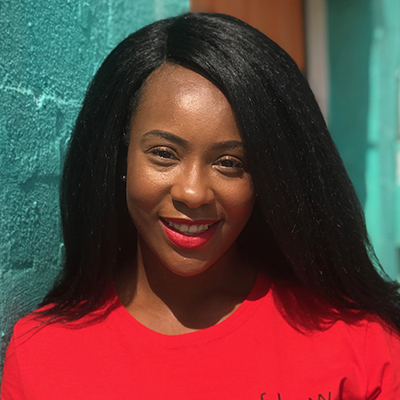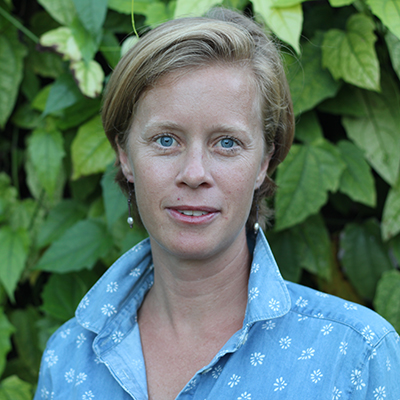Up Close and Personal with Policy

Up Close and Personal with Policy
In the Legislative Policy & Drafting Clinic, Dominique McClean (’21) worked on legislation to ensure equity in the state’s cannabis market and to prevent discrimination based on hair styles and types.
The first time someone told Dominique McClean (’21) she should go into politics, she was waiting tables at an upscale restaurant in Columbus, Ohio, where she worked to help pay her way through school at the Ohio State University.
During shifts, she regularly opined on the news, especially as it related to issues of equality and fairness (she was a women’s, gender, and sexuality studies major), and, one day, a coworker told her she “should be a mayor or something.”
The suggestion struck her.

“‘Actually, I do think I have a lot of good ideas—maybe I could do something good for people,’” she remembers thinking. “And then I thought, ‘How do I get there?’ That’s when I started considering law school.”
For now, the second-year student is aiming for a career in transactional law based in part on her experience as a fellow in the BU/MIT Startup Law Clinic last summer. But she has explored the political path as well. At Ohio State, McClean interned at the Ohio General Assembly, and at BU Law—where she serves as vice president of the Student Government Association (she will be president next year)—she enrolled in the Legislative Policy & Drafting Clinic. As a student in the clinic last fall, she had the opportunity to work on two high-profile matters in the Massachusetts legislature: efforts to ensure equity and inclusion in the newly legalized cannabis market in the state, and to prevent racial discrimination based on hair styles and types.
McClean, a Boston native, first began to think more deeply about equality at Denison University in Ohio, which she attended before transferring to Ohio State. As a freshman, she enrolled in a women’s studies class in part to please a member of the soccer team she was trying out for. She did not make the squad, but the class made an impact.
“I cannot overstate” how it feels “when you walk into a room and people start talking about things you have experienced for ages, and finally being able to put a language to that,” she says. “I thought, ‘I’m not nuts.’”
In the Legislative Policy & Drafting Clinic, McClean worked with the Joint Committee on Cannabis Policy, which is working on a bill to support marijuana businesses in communities hit hardest by harsh drug laws.
“There are still systemic barriers to folks who have been disproportionately impacted by the war on drugs,” McClean says. “This legislation would give them an opportunity to meaningfully enter the market.”
The clinic’s efforts to broaden the scope of the Massachusetts hair legislation—called an Act Prohibiting Discrimination Based on Natural Hairstyles—came in conjunction with the work of BU Law Dean Angela Onwuachi-Willig, who has weighed in on similar laws around the country, including in Wisconsin and California. In Massachusetts, the dean, clinic students, and Clinical Associate Professor Sean J. Kealy are aiming to make sure religious institutions aren’t exempt from its provisions (unless a religion requires a certain hair style).
The legislation aims to prevent students and employees from being discriminated against because of how they wear their hair (one particularly egregious example involved a Black high school wrestler in New Jersey who was forced to cut his hair before a match). For McClean, the work on the bill drove home the power of personal stories in politics.
It’s not very often that you stumble into something that has the potential to impact your future in positive ways.
Although McClean, who is Black, says she hasn’t personally experienced discrimination because of her hair, she was able to speak to the issue in a way that many of the other students in the clinic—most of them white—could not.
“The nuance that I’m providing might sound insightful, but it’s nothing to me,” she says. “It’s just me telling you literally what I have lived as someone who exists in the world as a Black woman who has hair.”
She added that “it’s a beautiful moment for [the hair bill] right now,” noting the Oscar awarded to director Matthew A. Cherry for his animated short film Hair Love, which tells the story of a Black father learning to do his daughter’s hair. “It’s so wild the way people encounter difference. I’m hoping this is a way to say Black people’s normal is worthy, is valid, and should be protected.”
McClean said she was happy to have the opportunity to offer her perspective.
“It’s not very often that you stumble into something that has the potential to impact your future in positive ways,” she says. “‘Would you like to help make the law that applies to you?’ Yes, I’d like to do that.”
